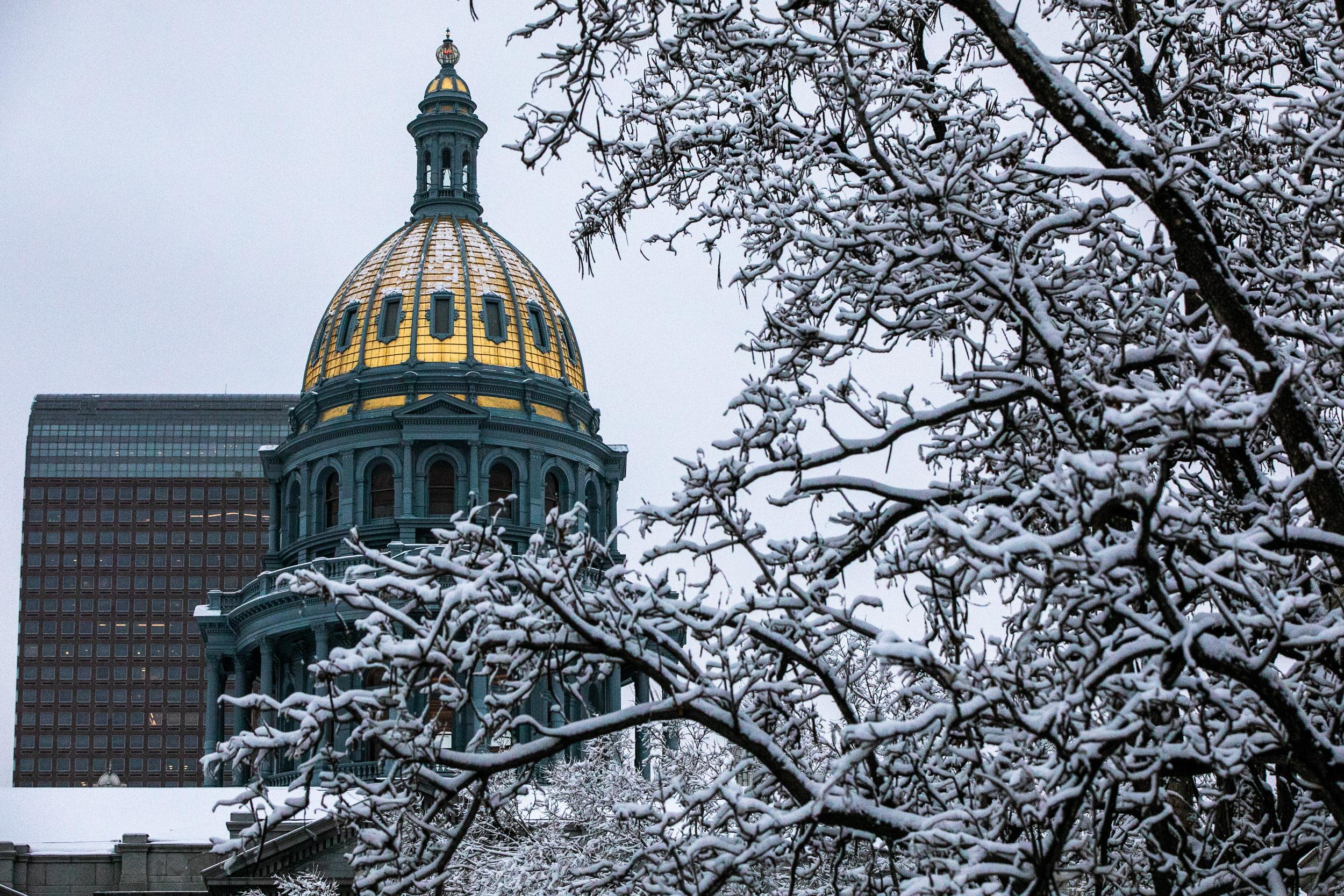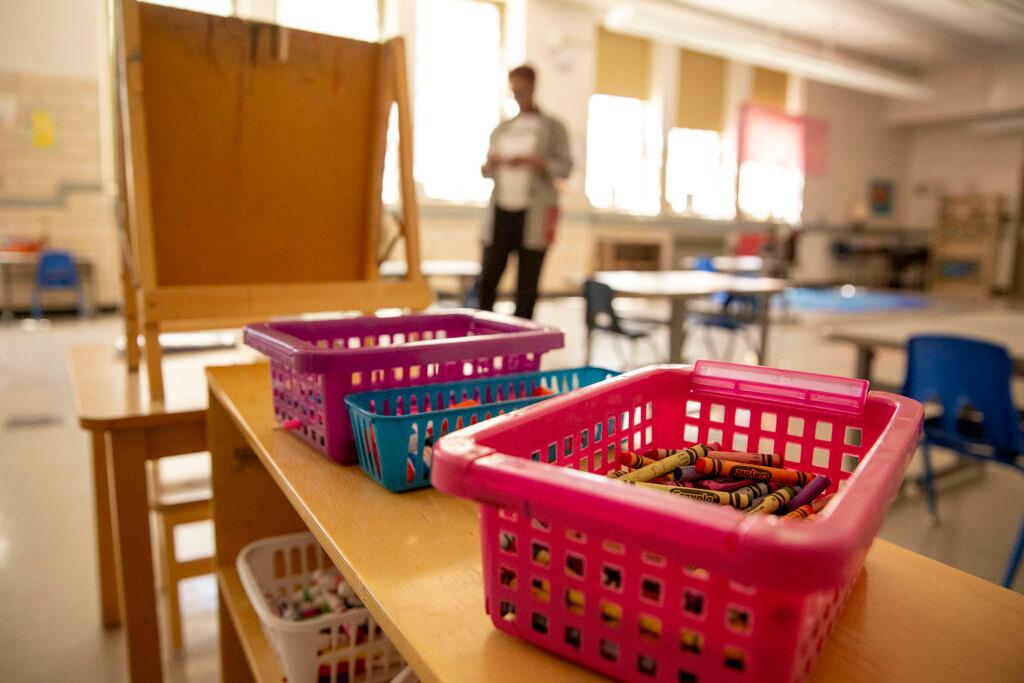
Colorado state lawmakers aren't sure when the COVID-19 outbreak will let them return to work. And whenever they do come back to the statehouse, they don't yet know how long they'll get to finish their work. That question is currently in the hands of the Colorado Supreme Court.
The legislature took the unprecedented step to suspend the session for at least two weeks amid the growing novel coronavirus pandemic. They're expected to return next week just long enough to vote to extend the break.
On Tuesday, Republicans and Democrats submitted their arguments to the Court on a rule that will determine how long they're able to keep working after they get back.
The state constitution requires the legislature to conclude its work 120 days after convening; this year that's May 6. All sides agree that over the years the requirement has been interpreted to mean 120 consecutive days, essentially a fourth month-long session. But the political parties have opposing views on whether that endpoint still applies when the session has to temporarily pause during a declared state of emergency.
Democratic lawmakers, who hold the majority in the legislature, say under an emergency, the original end doesn’t apply, and in a legal brief filed on behalf of the General Assembly, they argue that a narrow view would “bar emergency-based pauses of the legislative clock could thus prevent the Assembly from meeting its constitutional obligation to pass a budget.”
The Democratic argument rests on a legislative joint rule lawmakers passed over a decade ago when the session appeared to be under threat from a different outbreak.
The brief reads: "...in response to the H1N1 viral pandemic, the General Assembly construes this provision to be 'one hundred twenty separate working calendar days (when) the Governor has declared a state of disaster emergency due to a public health emergency.'"
This interpretation means lawmakers could take as long a break as they feel is necessary, without losing any legislative working days. The 120-day clock would start ticking again when they returned.
Republican state lawmakers argue in a separate state Supreme Court brief that the legislature must adjourn on May 6, no matter what.
“The constitution cannot be amended, altered, or changed by statute, let alone legislative rule," their brief states.
It makes the case that the underlying legislative rule for extending the session during a state of emergency is obscure and violates the plain reading of the state constitution that the session can be no more than four months long.
“Colorado’s constitution is supreme to statutory law. Joint Rule 44(g) is not even a statute. Besides being unconstitutional, Rule 44(g) is not necessary to address the declared public health emergency.”
Republicans also point out that if the legislature does need more time to pass a budget or any other legislation, Democratic Gov. Jared Polis could simply call a special session after May 6.
“Especially during this very serious time, respecting the constitution, and the protections it provides all Coloradans, has never been more important," the brief reads.
However, a special session would be more narrowly focused, and all pending legislation would have to start over from scratch. And convening a special session, especially to pass bills that don’t have wide bipartisan support, could carry political risks for the governor and the majority party.
Democrats argue a special session would raise separation-of-powers concerns by limiting the regular session’s length and giving more authority to Polis to determine the topics to be considered under a special session.
In their own brief, Gov. Polis and Colorado Attorney General Phil Weiser, both Democrats, sided with legislative leaders to argue the emergency declaration rule extending the legislature's window to work does not violate the state constitution.
“This narrow exception — triggered not at the General Assembly’s discretion but upon the governor’s declaration of a qualifying disaster emergency — is consistent with the voters’ intent that the General Assembly be a part-time citizen legislature and provides flexibility to the General Assembly to fulfill its obligations responsibly while the State is facing a public health crisis," the joint brief read.









